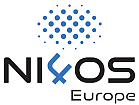Subject: radioactivity, gamma-ray spectrometry; fish; radiocesium
Year: 2022
Type: Proceedings
Title: Accumulation of Radioactive Cesium in Marine Fish Used in North Macedonia
Author: Angeleska, Aleksandra
Author: Crceva-Nikolovska, Radmila
Author: Dimitrieska Stojkovikj, Elizabeta
Author: Uzunov, Risto
Author: Stojanovska Dimzoska, Biljana
Author: Blagoevska, Katerina
Author: Angelovska, Ana
Abstract: The understanding and information on radioactive contamination of fish are important in order to assess the potential effects of radionuclide contamination on human health. Cs-137 can be accumulated in marine organisms and marine food chains, but to a lesser extent than in the terrestrial environment. Fish can ingest Cs-137 directly from the water and through their food, and it can be accumulated in their muscle tissue. Although many studies have shown that the level of radioactive cesium in marine fish is below the limits of experimental detection of several Bq kg-1, significant public concern has been expressed about the safety of consuming marine fish that originates from different countries, to the Republic of Macedonia. In order to control the fish that is being imported to Macedonia and is being consumed without analyses of different types of fish for the presence of radioactive cesium, radiocesium levels were measured by means of a standard gamma spectroscopy system, with a high-resolution HPGe detector. The instrument is with an active volume of 180 cm2, a relative efficiency of 30% and a resolution of 2 keV at 1332.5 keV. None of the analyzed fish samples in this study contained any observable levels of Cs 137, i.e. the values were less than 1 Bq kg-1. The low concentrations of radiocesium in the examined marine fish are ascribed to the low physiological ability to retain the radiocesium that they receive, and at the same time fish in salt water accumulate significantly less Cs-137 than fish in fresh water. We can say that on the basis of the current situation, without new sources of radioactive contamination, it is expected that the level of radiocesium will continue to decline.
Publisher:
Relation: Second International Congress on Biological and Health Sciences
Identifier: oai:repository.ukim.mk:20.500.12188/21579
Identifier: http://hdl.handle.net/20.500.12188/21579


